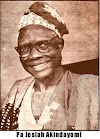Name Meaning —Although we know nothing of the early history of this prophetess-judge, it may be that her parents with a knowledge of the unselfish and untiring service of Deborah the nurse, gave their baby girl the same name which, as already indicated, means “a bee.” This we do know that the practical qualities symbolized by the busy bee were as necessary to Deborah as they were to the right performance of the less conspicuous and humbler duties of the former nurse Deborah. While Deborah the patriot gathered honey for her friends, like a bee she had a fatal sting for her enemies as the Canaanites came to experience. “Science confirms the ancient belief that, of all the animal kingdom, the bee ranks among the highest in intelligence” says Mary Hallet. “So Deborah stands out as among the wisest of all the Old Testament women.”
Family Connections—We have no genealogy of this female warrior and writer. The only personal touch we have is that she was “the wife of Lapidoth” (Judges 4:4 ), whose name is the only thing the Bible gives us. Their home was between Bethel and Ramah in the hill country of Ephraim. The palm tree under which Deborah ruled and possibly lived was a land mark, as palms were then rare in Palestine. In honor of her works, it became known as “The Palm of Deborah” (Judges 4:5). Although referred to as a “mother in Israel,” we have no record of Deborah being a mother of natural children by Lapidoth.
Occasionally, a strong-minded and unique woman breaks in upon human history and by her exploits leaves the impact of her personality upon events and secures for herself an imperishable honor. England, for instance, will never forget the bolds deeds of Margaret of Anjou, who at the head of her northern forces swept over the country like a cyclone, destroying armies and tearing down thrones. In France, Joan of Arc, the patron saint of her country, professed to have divine visions as to her destiny to restore peace to her distracted nation by the crowning of Charles. From school days we have known how she led 10,000 troops against the English at Orleans, and compelled them to retreat, and of how other victories followed as her consecrated banner struck terror into the hearts of her enemies. Ultimately, she was burned at the the stake as “a martyr to her religion, her country and her king.” Her ashes, thrown into the Seine, were carried to the sea, and the sea, taking them around the world became emblematic of her universal fame.
Similarly gifted with superior spiritual, mental and physical powers to leave her mark upon the annals of time was Deborah whom God raised up and endowed with a remarkable personality and varied gifts for the deliverance of His distressed and defeated people. A woman of unusual attainments, Deborah carved out an enviable niche for herself. With characteristic resoluteness she occupied several positions.
She Was a Wife
While nothing is said of her husband and home life, there is no reason to affirm, as some writers do, that being born to rule, Deborah was master in her own home. Some writers feel that since Lapidoth was the husband of a prominent woman, that he was “hen-pecked” or that Deborah “wore the trousers.” Wharton in Famous Women suggests that Lapidoth was a weak man married to a strong-willed and a strong-bodied woman. “His very name is in the original Hebrew put not in the masculine, but in the feminine gender. I have no doubt that while by no means so great, he was yet ‘as meek as Moses.’” Although meek, Moses was by no means weak.
We prefer to believe that Lapidoth admired the ability and influence of his more conspicuous wife. His name means, “torches” or “lightning flashes,” and we can well imagine how in his quieter way he was the encourager of Deborah in all her activities. Although not so forceful and capable as his wife, yet he was illuminative in his own way and behind the scenes was as good and conspicuous in faith as the woman he loved, and in whose glory he was content to bask. Many of the notable men of the world have testified to the succor and inspiration they received from their wives who walked with them in full agreement as they climbed the heights. Perhaps the shoe was on the other foot in that God-fearing home. Deborah would never have become the dazzling figure she did, had she not had the love, sympathy, advice and encouragement of a husband who was happy to ride in the second chariot.
She Was a Prophetess
Deborah is one of several females in Scripture distinguished as being endowed with the prophetic gift, which means the ability to discern the mind and purpose of God and declare it to others. In the days of the Old Testament, prophets and prophetesses were the media between God and His people Israel, and their gift to perceive and proclaim divine truth stamped them as being divinely inspired. Such an office, whether held by a male or female, was a high one and corresponds to the ministry of the Word today. Can you not picture how hungry-minded Israelites found their way to that conspicuous palm tree beneath which Deborah sat, stately in person with her dark, penetrating, prophetic eyes, and poured out wisdom and instruction as she declared the whole counsel of God? As a woman, she had intuition as well as inspiration, which is always better than a man’s cold reasoning. Had Pontius Pilate taken the advice of his wife he would not have signed the death warrant of Jesus Christ.
She Was an Agitator
As one meaning of “agitation” is to stir up or excite public discussion with the view of producing a change, then Deborah was an effective agitator who stirred up Israel’s concern about its low spiritual condition. The land was debauched and well-nigh ruined, and under the rule of the Canaanites liberty had been lost. The people were dejected and afraid, for their spirits had been broken and all hope of deliverance had vanished. But Deborah did more than prophesy; she aroused the nation from its lethargy and despair. Hers was a fearless and unsolicited devotion to the emancipation of God’s people, and she awoke in them a determination to free themselves from their wretched bondage and degradation. Out went her call and challenge to the help of the Lord against the enemy. Day after day, she excited those who gathered to hear her words of divine wisdom with the certainty of deliverance from a heathen foe if only they would bestir themselves from their folly and fear and go out and fight.
She Was a Ruler
Deborah was the fifth of the leaders or “Judges” of Israel raised up by God to deliver His people from the bondage their idolatry had caused, and instant both in word and deed she fulfilled her role as “Judge,” at a time when men tried to do right in the sight of their own eyes. As the position of woman in those days was of a distinctily subordinate character, Deborah’s prominence as a ruler is somewhat remarkable. All Israel was under her jurisdiction, and from the palm tree bearing her name, and elsewhere, called “the sanctuary of the palm,” she dispensed righteousness, justice and mercy. After the victory over the nation’s foes, she ruled with equity a land that had rest from war and captivity for forty years.
She Was a Warrior
Having fought with words she went forth to throw off the oppressor’s yoke with swords, and what a fighter this patriotic and inspired heroine proved to be. Deborah sent for Barak, the son of Abinoam of Naphtali, and told him that it was God’s will that he should lead her forces and deliver the country. Long slavery and repeated failures made Barak hesitate, but ultimately he decided to lead the army provided Deborah, the brave-hearted and dauntless ruler, went with him. Barak felt he could face the foe if his ruler were at hand, and out they went to meet Sisera, a mighty man of war, who had terrorized Israel for many years. Great were the odds against Deborah and Barak, for their army consisted of some 10,000 men. Sisera commanded 100,000 fighters, and had 900 iron chariots. When the eventful moment of combat came, the dauntless spirit of Deborah did not quail. True, tremendous odds were against them, but Deborah had God as her Ally and “the stars in their courses fought against Sisera.” A fearful hailstorm overtook the land, and the Canaanites were almost blinded by the rain, and were ultimately overwhelmed in the swollen river of Kishon. Sisera escaped but was killed by Jael while asleep in her tent. (See Jael .) Thus Deborah gained undying fame as the female warrior who rescued her people from their cruel foes.
She Was a Poetess
The prose and poem of Judges 4 and 5 are associated with the same historic event, and reveal that Deborah could not only prophecy, arouse, rule and fight, but also write. It was said of Julius Caesar that, “he wrote with the same ability with which he fought.” This observation can also be true of Deborah, who, after her victory over the Canaanites, composed a song which is regarded as one of the finest specimens of ancient Hebrew poetry, being superior to the celebrated song of Miriam (see Miriam). This song of praise, found in Judges 5, magnifies the Lord as being the One who enabled Israel’s leaders to conquer their enemies. Out of the contest and conquest came the moral purification of the nation, and the inspiring genius of it was a woman daring and dynamic in the leadership of her nation. No character in the Old Testament stands out in bolder relief than Deborah—prophetess, ruler, warrior and poetess. Her song is immortal because her life was dedicated to God and her deeds heroic and sublime.
She Was a Maternal Figure
The last glimpse we have of Deborah is as “a mother in Israel” (5:7 ). Commenting upon our Lord’s action in taking up little children into His arms and blessing them as being a father’s act in Hebrew custom, Bengel says, “Jesus had no children that He might adopt all children.” Perhaps it was so with Deborah who, as far as we know, had never experienced actual motherhood, but yet became as a mother to all in Israel, and the source of this spiritual motherhood was her piety. Above all of her remarkable gifts was her trust in God which is ever the source of any woman’s highest adornment. As she sat under her palm tree to rule in righteousness and translate the revelation of God, her heart was filled with that “grace divine which diffused itself like a sweet-smelling savor over the whole land.” Hers was a brilliant career because of a heart that was fixed in God. Meroz failed God, and under a curse, vanished, but Deborah is immortal because she served God to the limit of her ability and capacity. She was indeed the female Oliver Cromwell of ancient Israel who went out to fight the Lord’s battles with a psalm on her lips and a sword in her hand.









0 Comments